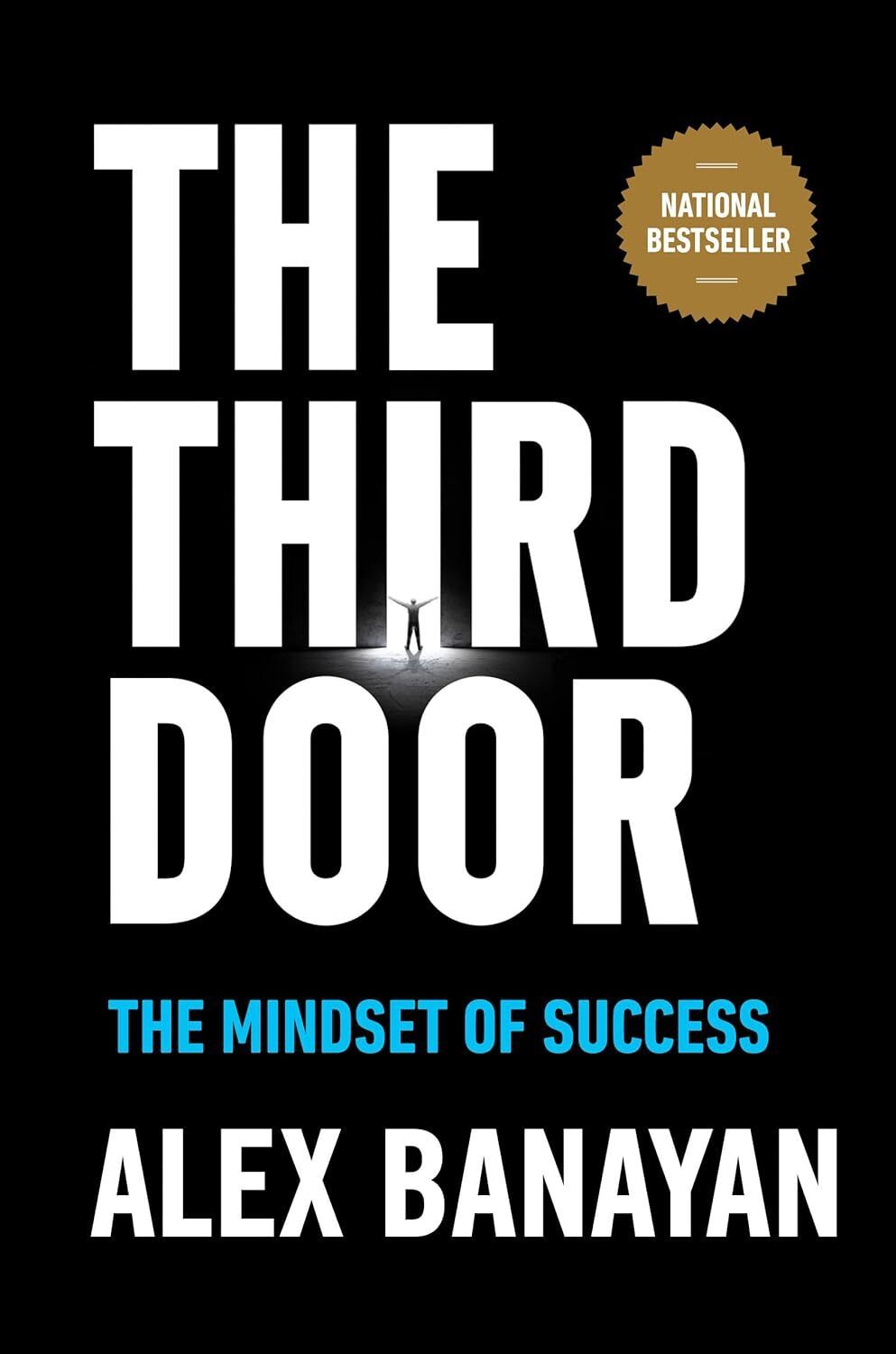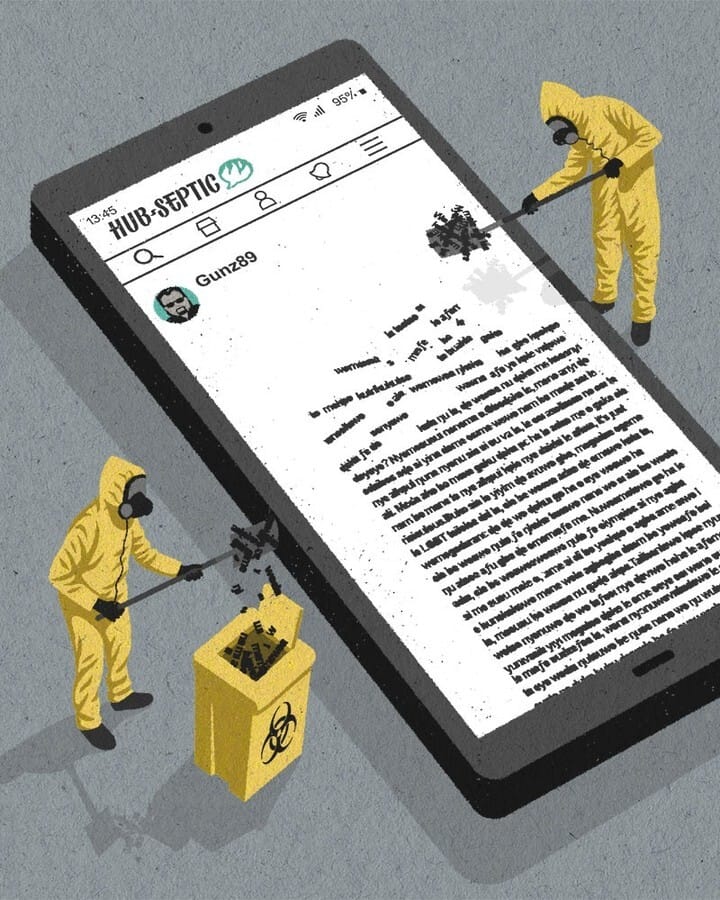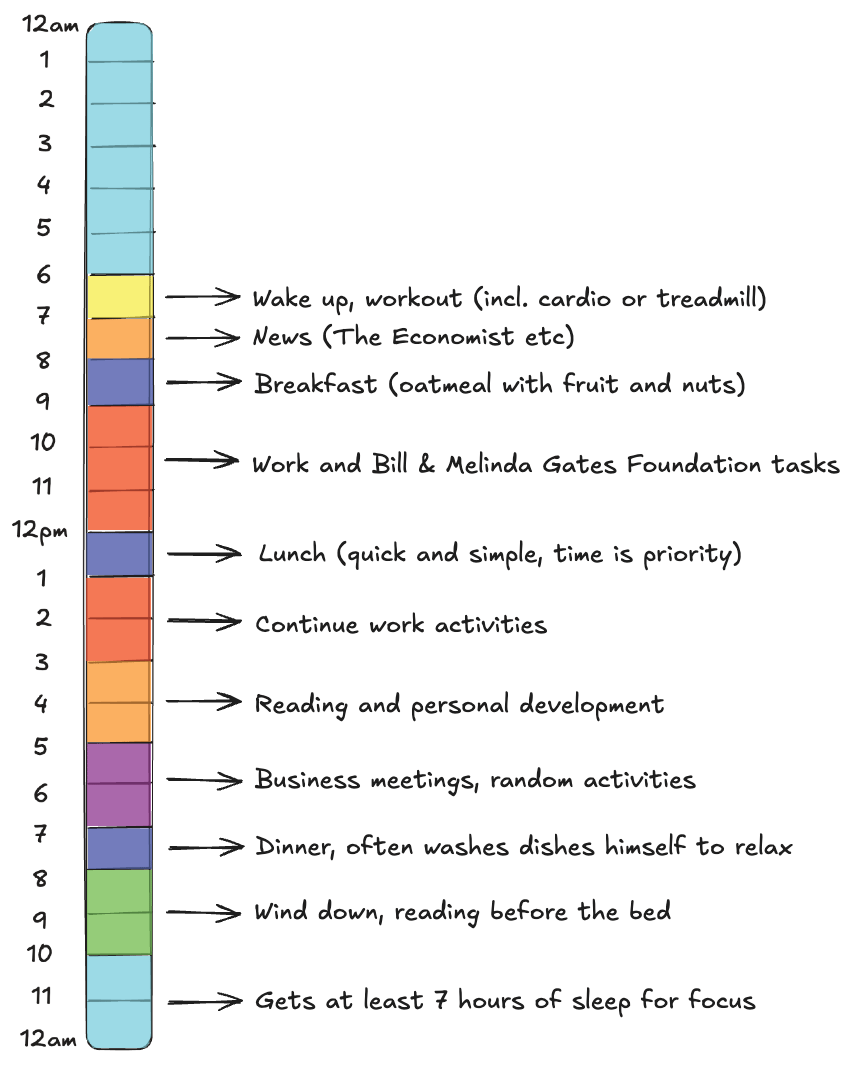Hello and welcome.
I missed my humidifier's vibe in the evenings. Needing to run them means we’ve been using the heating a lot in the house.
And that can only mean one thing - Christmassy, chilly vibes are in the air!
A huge accomplishment this past week: I restocked distilled water for the humidifiers - a whole season’s supply.
Winter is coming.
Oh, almost forgot:
Everything here is handpicked and manually written for you.
Enjoy the edition!
“Let it sink…”
Nothing has served me better in my long life than continuous learning.
I went through life constantly practicing (because if you don't practice, you lose it)
Reading for the sake of reading is like stockpiling ingredients without cooking.
You may have everything needed, but cannot enjoy the meal.
The Curious Procrastinator relies on word of mouth!
If you’re enjoying our newsletter, please help us reach more readers by forwarding this letter to a friend.
Power moves
We consume too much information and feel like we’re making progress.
That’s exactly how I feel about my formal education.
I truly started learning only after I graduated from university. When I got my Master’s degree, I realized that most of the knowledge I had gained was informational rather than practical.
It was nice to learn political history, but in reality, this knowledge isn’t actionable for my needs.
Instead, I wanted to understand finance, investments, mental models, marketing, and sales.
These were covered in my program, but only within a “common sense” scope.
I wish I’d known that before applying to the “International Economy and Law” faculty!
After graduation, I found I couldn’t put the existing knowledge into practice. So, I started teaching myself.
Here’s what I’ve learned about learning.
Our brain is incredibly lazy bitch, and there are really only a few major functions we can control: thinking, learning and doing.
Did you know that thinking is one of the hardest tasks in the world?
It’s far from simple. I know because I’m still trying - and it’s tough.
It’s clear now that the brain functions like a muscle: if you don’t use it, it will degrade. To keep it fit, you need to “work out” more than just three times a week.
It’s challenging, it is uncomfortable.
The Challenge of Keeping the Brain Active
Generally, there are only two options to keep it active:
- either solve complex problems
- or learn how to solve complex problems.
Either... or...
Either navigate a difficult negotiation, or learn negotiation tactics to crush it next time...
Either solve a technical problem on your project, or study coding further to improve your troubleshooting skills...
Either analyze investment options to grow your wealth, or dive into basic strategies to start and grow your own thing...
High-quality decisions are worth billions.
That’s why CEOs are rewarded so highly.
In contrast, tough physical labor is often cheap - unless it’s a unique, highly skilled craft that took years to master, like neurosurgery, stunt performance, or kintsugi art (don’t bother googling it, as it probably won’t help with your current issues).
Do you see the pattern?
Reaching the top takes years of learning.
A Powerful Learning Technique
So, is there an optimal way to learn?
Here’s a powerful 3-step technique from Nobel Prize-winning physicist Richard Feynman:
1. Choose and study a concept.
2. Teach it to a child.
3. Return to learning: fill in knowledge gaps and simplify further.
Teaching to a child might be overkill, but I’ve noticed that when I explain a concept to someone else, I can identify my blind spots. Good for me and condolences to my wife who has to listen.
Learning is slow and not easy.
There’s no shortcut, like getting six-pack abs in a week.
Learning isn’t just reading or watching YouTube/TED/documentaries/whatever.
It’s not just studying.
Learning is about understanding and connecting ideas. Once you know how to link concepts from different areas, you’ll be more than just fine.
Just imagine how unstoppable you’d become once you’ve mastered Psychology and Marketing, or Storytelling and Data Analytics, or Art and Engineering.
Control Your Inputs
We’re a generation of junk food and junk information.
Remember: junk in, junk out.
Control your inputs!
Slow down.
Take your time.
Do not trust your memory. Ever!
Just yesterday, I came up with a great title for this newsletter while out for a walk. Since I didn’t have my phone, I didn’t write it down.
...so now you’re left with whatever it is today, I am sorry.
And as a powerful finisher, an inspiration from Socrates:
- Smart people learn from everything and everyone.
- Average people learn only from their experiences.
- Stupid people already have all the answers.
That’s why highly curious people are so successful.
We have a constant need to learn.
This week, take a moment to choose one high-quality source, and leave the rest.
Stay curious, my friend!
Till next time.
Feeling the vibe? Drop your email and we will deliver more weekly.
Our favorite digital finds
Need to capture a screenshot of a long page? Simply drop the link and get a ready-to-download image.
An unwinding app that whispers forest sounds into your ears. Helps me stay focused and keep working on my tasks.
Minimalistic and aesthetic journal which fades your words as you type. Focus on writing, forget about editing.
Short & sweet
The big idea: why am I so forgetful? - 4 min read.
We are designed to forget. Don’t be mad at yourself if you cannot recall where you put your wallet.
How to be alone with your thoughts - 5 min read.
Being “bored” is a modern luxury. Short read about how to spend time with your thoughts.
7 Simple Tips to Improve Daily Focus - 6 min read.
Nice actionable items. I’ve tried all of them except Berocca. Should I?
Press Play
Our pick of the week for deep-focus work.
Add this to your shelf

The Third Door: The Mindset of Success by Alex Banayan
Imagine life as a club with three doors: a main entrance, a VIP entrance, and a "third door" for those who find creative ways in. In The Third Door, Alex Banayan explores how successful people break norms, take risks, and find unconventional paths to reach their goals.
Unpacking the routines of interesting people
Bill Gates - co-founder and former CEO of Microsoft, is a forward-thinking visionary who has accurately predicted many technologies, as well as the COVID-19 pandemic.
Interesting Facts:
Another famous college dropout.
He enjoys washing dishes to unwind most nights.
An avid reader, Gates averages 50 books per year (as seen in his daily routine) and often shares his recommendations on Gates Notes.
A huge fan of cheeseburgers, which he frequently has for lunch.
Watch-worthy clips
Shaan Puri (co-host of My First Million podcast) is a great storyteller. Here are his secrets.
Enjoying the newsletter? Please forward this issue to a friend who might enjoy it too 😊🙏🏻
It only takes 10 seconds. Making this one took us 9 hours…
If you are new here, what are you waiting for? ⬇️




